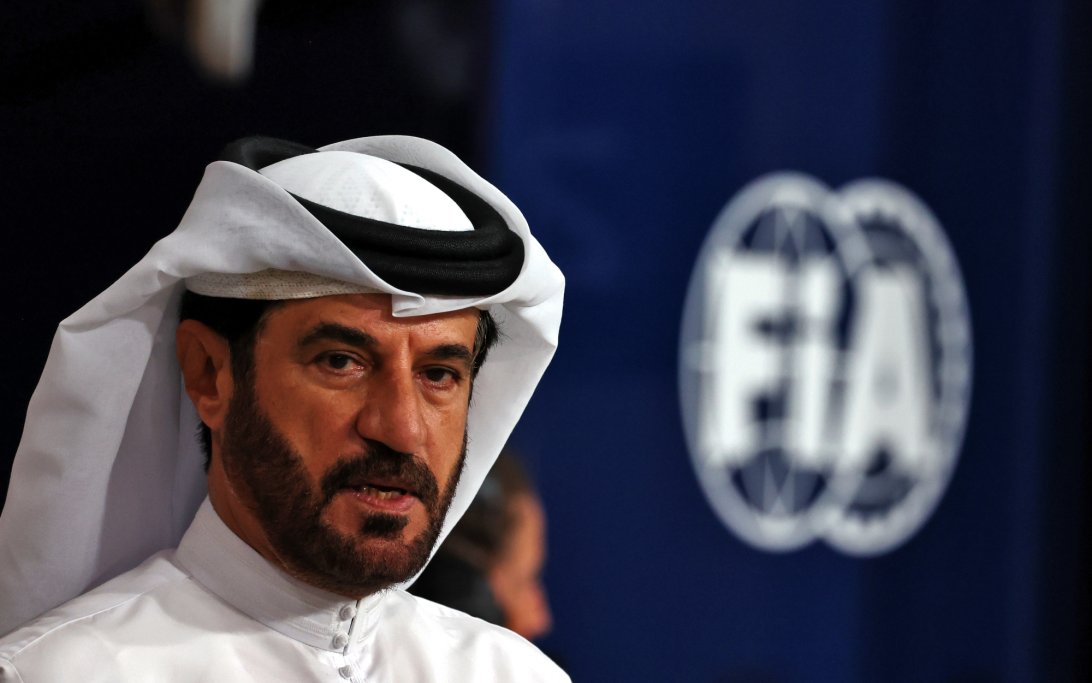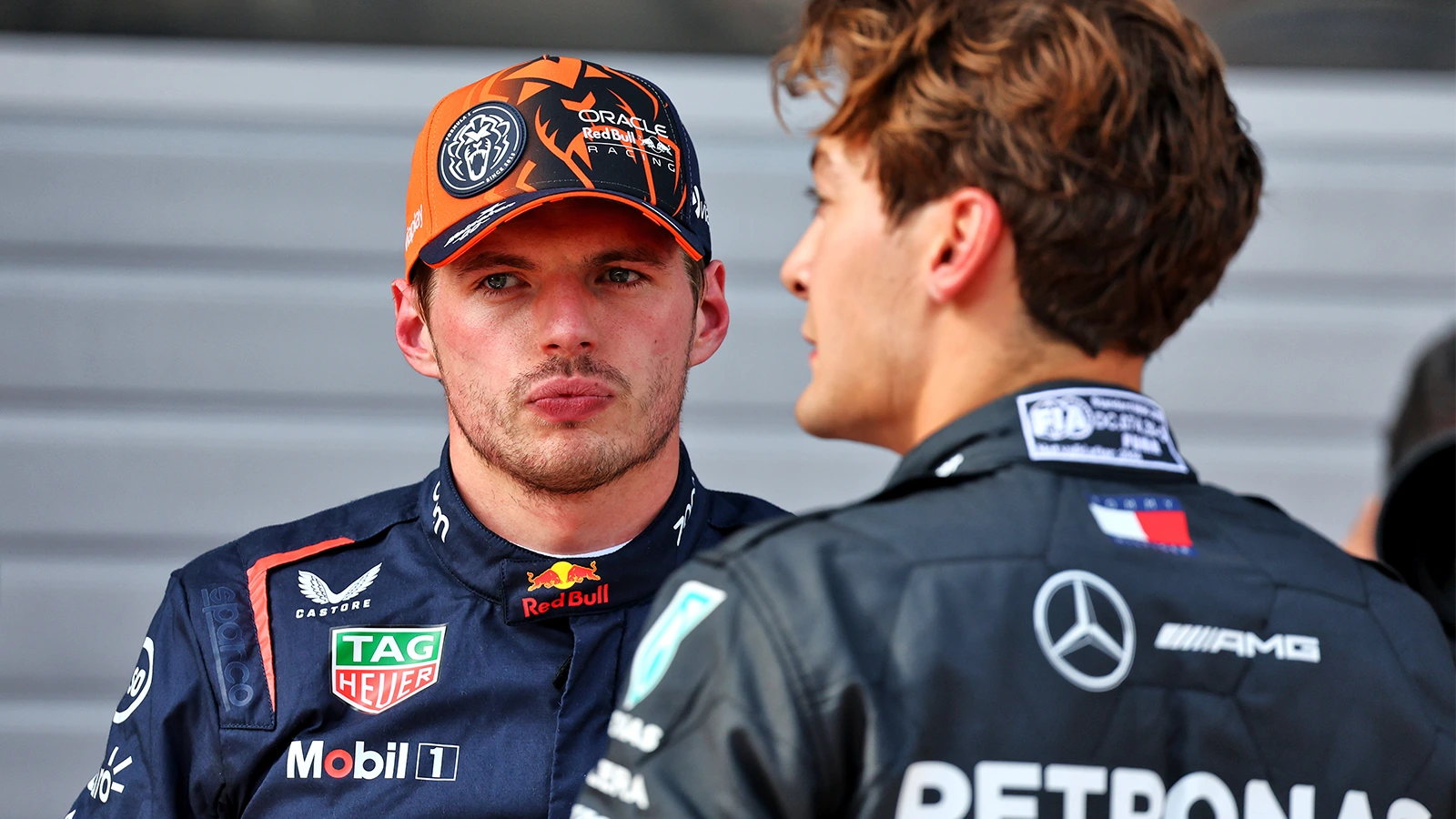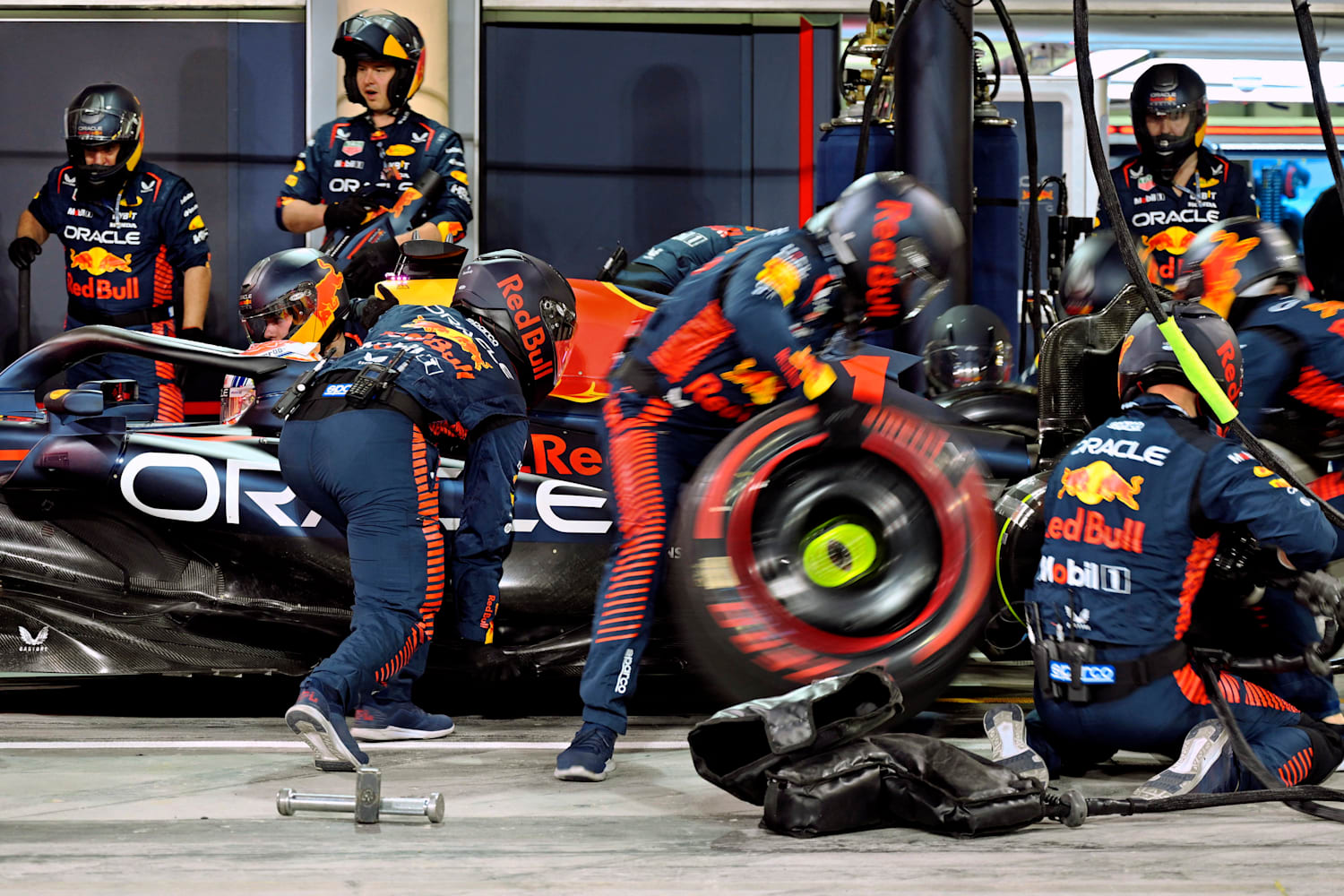Formula 1’s Credibility Crisis: How the FIA’s Inconsistencies Are Fueling Outrage
In what should have been a thrilling celebration of racing excellence at the Canadian Grand Prix in Montreal, Formula 1 instead found itself at the center of an escalating controversy. From Max Verstappen’s heated radio rants and Red Bull’s formal protest against George Russell, to Lando Norris colliding with his teammate Oscar Piastri with seemingly no consequences, the Grand Prix’s aftermath felt less like a sporting event and more like a courtroom drama.
At the heart of the backlash isn’t just the collisions or aggressive tactics—it’s the increasingly erratic and inconsistent application of rules by the FIA stewards. Fans, drivers, and teams are all asking the same burning question: What exactly are the rules anymore, and who do they apply to?

The Russell-Verstappen Safety Car Controversy
Max Verstappen rarely holds back, and in Montreal, he didn’t need to. Under the safety car, George Russell appeared to aggressively slow down, prompting Verstappen into a near-overtake to avoid contact—an illegal move if completed. Verstappen immediately backed off, but the radio transmissions told the full story: “Really slow, what is he doing?”
To Red Bull, this wasn’t just poor driving. It was a deliberate “brake test”—a tactic designed to lure Verstappen into an illegal overtake or disrupt his tire temperatures. It wasn’t just risky; it was unsportsmanlike. Red Bull’s formal protest accused Russell of erratic behavior and of falling too far behind the safety car—both violations under FIA regulations.
Russell’s defense? Tire warming. Mild braking. Yellow flags limiting his ability to close the gap to the safety car. Mercedes stood by their man, pointing to telemetry that showed only slight brake pressure.
The stewards sided with Russell, citing insufficient evidence of foul play. Protest denied. But for fans and Red Bull alike, the question lingered: If this didn’t qualify as dangerous driving, what would?

Norris vs. Piastri: Team Disaster, Stewarding Disaster
As the race neared its end, McLaren’s two drivers found themselves fighting for track position—until they weren’t. Norris lunged into a shrinking gap, collided with Piastri, and knocked himself out of contention. While Piastri limped home, a potential double podium for the team was gone.
The reaction? A 5-second time penalty for Norris. No penalty points. No grid drop. And most glaringly, no explanation for why this wasn’t treated like similar incidents in the past.
According to the FIA’s own precedent, any driver found wholly to blame for a collision typically receives at least one penalty point. Verstappen, just weeks earlier, received three points for a contentious—but far less consequential—incident in Spain. So why did Norris walk away clean?
Some suggested that because it was an intra-team collision, the punishment was softened. Others argued that because the incident didn’t drastically affect Piastri’s final position, it wasn’t deemed severe. But isn’t that missing the point? The rules are supposed to govern actions, not outcomes.
Where Is the Standard?
Formula 1 fans are no strangers to controversy. But Montreal didn’t just stoke the usual Twitter outrage—it opened the floodgates to serious questions about the FIA’s consistency.
Here’s the problem: if George Russell can drastically slow down under the safety car without penalty, if Lando Norris can end his teammate’s race without a single penalty point, and if Max Verstappen can be hit with three points for a questionable move in Barcelona—then who’s actually in charge, and what are the rules?
The inconsistency is damaging the sport’s integrity. Fans are left refreshing Twitter for hours after the checkered flag, waiting not for highlights or podium interviews, but for official rulings. In Montreal, stewards took five hours to announce final results—an unacceptable delay that turned confusion into chaos.
Red Bull’s Protest: Justice or Gamesmanship?
Red Bull’s protest against Russell was serious, but to some, it also felt strategic. Was it about ensuring fair play, or trying to reverse a result that didn’t go their way? Critics were quick to point out that Red Bull withdrew part of their protest after admitting one claim couldn’t be backed up.
It backfired. The protest was dismissed. No penalty. No win for Verstappen. And suddenly, the spotlight wasn’t on Russell’s driving—it was on Red Bull’s perceived desperation.
Still, the incident highlighted a more pressing issue: drivers are pushing the limits of legality because they can. Russell’s perfectly-timed mirror glance, slight brake tap, and immediate radio complaint all point to a calculated move designed to bait Verstappen into a mistake. Clever? Maybe. Legal? Apparently. But it raises the question: How far can a driver push before the stewards actually intervene?
Credibility on the Line
This isn’t just about Montreal. It’s about the long-term health of the sport. If drivers don’t know where the line is, and fans believe penalties are doled out based on favoritism or guesswork, Formula 1 risks becoming a sport of chaos, not competition.
And make no mistake—the Montreal Grand Prix didn’t solve anything. It made things worse. Every future incident will now be weighed not just against the rulebook, but against this moment. Against this lack of standard.
Lando Norris’s lack of penalty points will be cited every time a driver is punished for contact. George Russell’s safety car slowdown will be replayed whenever someone brakes late on a restart. And Verstappen’s points in Spain will linger as the benchmark for questionable enforcement.
What Needs to Change
To move forward, the FIA must urgently address three things:
Transparency: Decisions cannot take five hours. Fans and teams deserve clarity—and speed. Explain the rationale in real-time or shortly after incidents, not long after the lights go out at the circuit.
Consistency: Actions should be punished based on intent and execution, not outcome or team affiliation. Intra-team collisions must be treated like any other on-track incident.
Accountability: If stewards make an inconsistent call, there should be a review process—not to reverse results, but to refine judgment and ensure future clarity.
Montreal Was a Tipping Point
Formula 1 thrives on drama, but not at the expense of fairness. The Montreal Grand Prix should have been remembered for daring overtakes, thrilling strategies, and podium surprises. Instead, it’s become a case study in how stewarding chaos can overshadow the spectacle of racing.
If the FIA doesn’t act, the real damage won’t be measured in lost points or missed podiums—but in lost trust. And once that’s gone, no safety car or five-second penalty can bring it back.
What’s your take? Should Norris have received points? Did Russell cross the line? Is the FIA in crisis—or simply doing their best in a chaotic season? Let’s keep the debate going.
Full Video:






